#place Palais Royal
Explore tagged Tumblr posts
Text
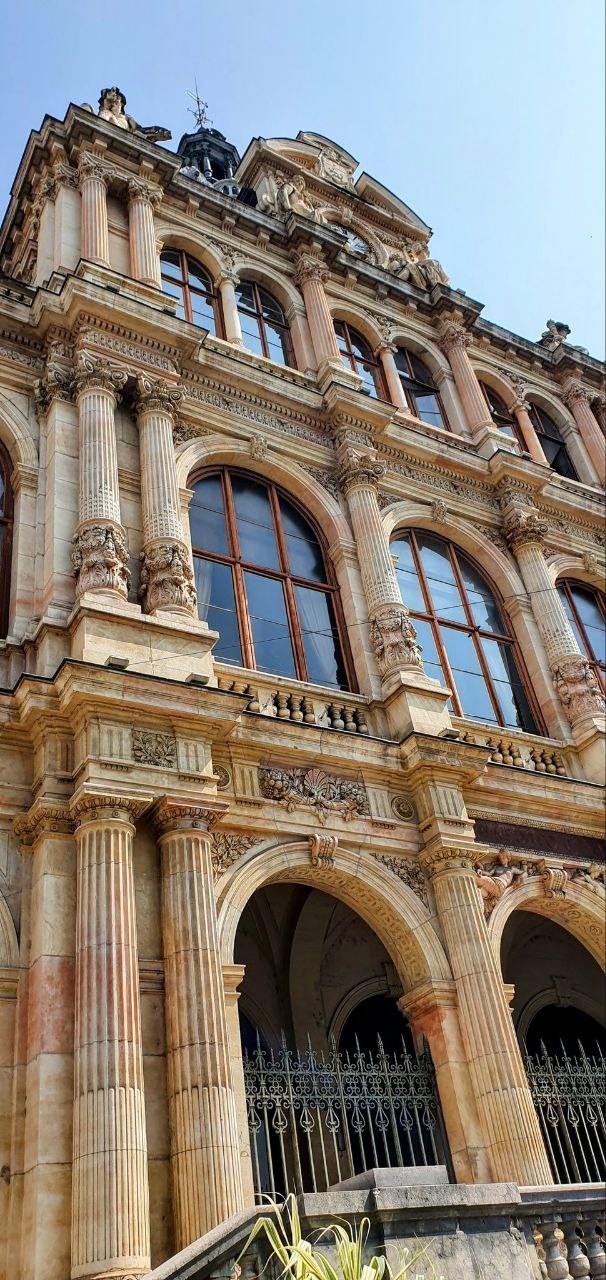
📍Palais de la Bourse, Lyon, France
#dark academia#light academia#classical#academia aesthetic#escapism#academia#books and libraries#classic literature#books#architecture#place#building#old#historical#history#Palais de la Bourse#lyon#france#royal core#cottage core#aesthetics#mood#vibe#academic#tumblr#travel#photography
55 notes
·
View notes
Text
@fritz-valentine i did it i answered the ask game for the other two!!
2. Favorite canon thing about this character
Cartouche: One bit the show doesn’t lean into enough imo but it's there is that he’s overconfident! Dude is self-assured to a fault! He can make an effort to plan things sometimes, but usually he doesn’t like to bother unless he made a first attempt beforehand and fucked up. He runs into fights unarmed all the damn time! also the bit from the first ep where he’s being smug at Galichon like “of COURSE this is the door to the exit, I trust my instinct on this one, I just KNOW” and they open the door and it’s like. the guards break room asdfgk it’s funny ok
also his whole deal with Isabelle!! His dumb crush is showing at all times, he’s not as smooth as he thinks he is, i just think he’s cute heehee
Falconi: MY BOY HAS ANGER ISSUES. It's so funny how he's presented as the cold, quiet, calculating bad guy… but actually he's fucking seething all the time. He's got that anger always bubbling up right under the surface, and not only is he massively pissed off, it makes him so fucking stupid too, it's great.
I love his sad backstory, but also love that the whole thing happened over 10 years ago and it doesn't excuse any of the shitty things he does through the show, like, at all, except for the multiple murder attempts on le Lorrain.
(also the fact that they had to nerf him for the hero-villain team-up episode is never not funny)
12. What's a headcanon you have for this character?
Cartouche : He argues with Isabelle when she calls him a bandit, but look, the guy didn't learn to commit crimes by being nice and never breaking the law, right?? My headcanon is he used to be a whole lot less nice, but ended up being swayed into helping people as the situation in Paris kept getting worse. He’s a good dude in the end, but he did grow up on the streets with no one to rely on! You can’t blame a guy for enjoying a bit of crime, i think…
He is very good at card games, and actually taught himself how to count cards! He used to gamble a lot but has generally put that all behind him these days and only plays for fun with his friends. Without cheating, for the most part. Honestly he's infuriating at most luck-based games.
Absolutely thinks of his friends as his family. He'd do anything for them <3 But out of all of them, le Lorrain is the one he most consistently on the same wavelength with. Le Lorrain is the one who joined the gang most recently, but as far as Cartouche is concerned that doesn't matter at all: they just get each other!
Falconi: When he first arrived at the academy, for a brief moment he really thought he’d be able to fit in with the other students and kinda hoped to make friends! When the whole friends thing didn’t pan out (the most popular guy around and his friends deciding they don’t like you will kinda do that, but he struggled to connect with people who weren’t hostile too), he kinda gave up on that to focus on training, which had always been the most important thing to him anyways.
My other headcanon here that kinda ties with the previous one is that there was never any real possibility of him ever marrying Anne de Montsirac, but he genuinely let himself believe it might happen. He was lonely and didn’t know how to fit in with all these rich people, and she was gentle and kind and pretty, and he fell so hard for her… She did like him back, but her feelings didn’t run as deep as his, and in the end her family never would’ve let any kind of proposal happen anyways. It was never going to happen, but everything went so badly that Falconi never quite stopped convincing himself that everything could've been different if he'd been able to propose first.
The bonus Falconi headcanon is he absolutely has a hands kink. He just does.
#cartouche prince des faubourgs#my other Very Important headcanon is that Falconi absolutely is a romantic. not that you'd know considering his current situation#but he is!#bonus le Lorrain headcanon: pre-flashback he would occasionally visit the Palais-Royal!#it was a good place to hear music and it was right next to the Opéra so it makes sense ok#he never really met Philippe d'Orléans though
5 notes
·
View notes
Text





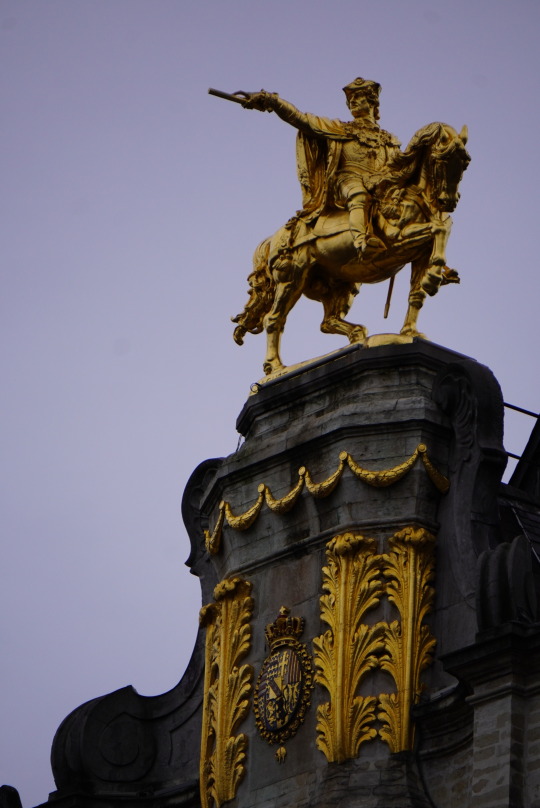
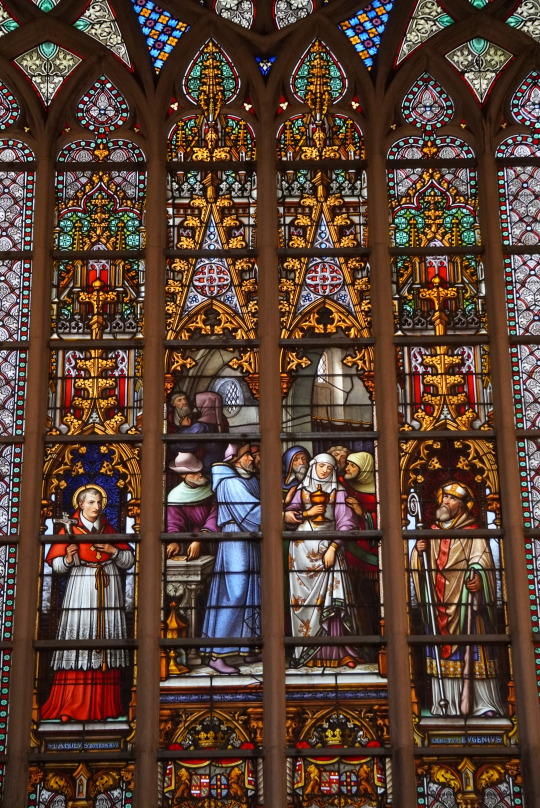

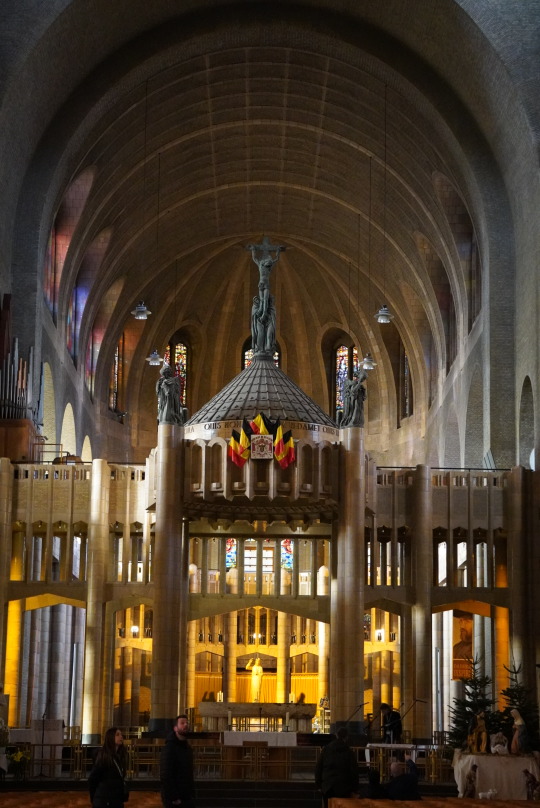





Details of Brussels, captured through the lense of my friend R., a first-time visitor. 🏙️
#BXL#Bruxelles ma belle#posted w/ permission#musées royaux d'art et d'histoire#grand-place#église saint-catherine#palais royal de bruxelles#Cathédrale Saints-Michel-et-Gudule de Bruxelles#Basilique du Sacré-Cœur de Bruxelles#Brussels#Belgium
4 notes
·
View notes
Text

2 notes
·
View notes
Text
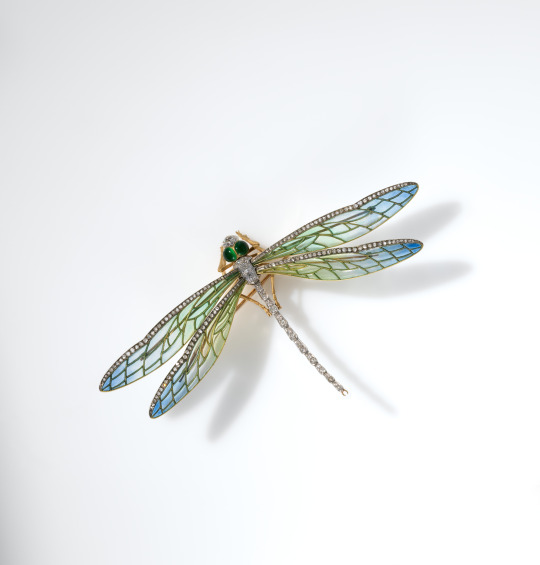
Brooch
Edgar Bense for Boucheron
c.1890
Conceived as a dazzling dragonfly with delicate plique-à-jour wings, this brooch epitomizes the Art Nouveau style in both fashion and manufacture. With its translucent wings set en tremblant and its sparking rose-cut diamonds, the present jewel catches the light brilliantly. In the enameling technique called plique-à-jour, vitreous enamel is applied to openwork wire cells without a backing, creating the transparent effect of stained glass. The house of Boucheron was founded in 1858 by Frédéric Boucheron (1830–1902). First opened in the Galerie de Valois, under the arcades of the Palais Royal, the shop was perfectly situated in the center of Second Empire Parisian luxury. In 1893 Boucheron moved to the Place Vendôme—the first of the great French houses to occupy that location—where it remains headquartered to this day, with more than 30 branches across the globe.
The MET (Accession Number: Accession Number: 2018.447.1)
#brooch#art history#1890s#art nouveau#jewelry#belle epoque#fashion history#19th century#historical fashion#france#turn of the century#gold#diamond#enamel#the met#those wings just make me go !!!!!!!
605 notes
·
View notes
Note
Hi! I was wondering if you could write another part for Otter creator! Like maybe them with Furina and Neuvillette having a tea party or something! (Possibly Wriothesley[?]!!), and they start realising more! (If Wriothesley’s there he should be oblivious for a bit!)
The Otter Chronicles Pt. 1




♡︎ « Next Part ⋙
૮꒰˶ᵔ ᗜ ᵔ˶꒱ა Pairings : GN! Otter Reader x Fontaine
૮꒰ྀི∩´ ᵕ `∩꒱ྀིა W.K. : 1.3k
໒꒰ྀིᵔ ᵕ ᵔ ꒱ྀི১ Tags/CW&TW : Fluff, yandere-ish behavior (really straining the term here), itty bitty bit of angst

“Tea party, hooray!” It was easy to see that Furina was excited.
Because today was the day for your first REAL tea party. Not just locked in a room with her for a day.
And yes you meant a literal day. Like a whole ass day.
Anyway-
Her and Neuvillette were going to FINALLY take you to meet Wriothesley! Yay! It was just a date to take about some royal officiant bullshit you couldn’t bring yourself to care about, but as per usual, they refused to take you out of their sights.
So here you were, getting all dolled up in Lady Furina’s lap. A new bow tie, a fancier hat, and somehow Otter friendly makeup.
Where they found it? You don’t know. Did they make it? You’re 99.9% sure they had it commissioned. Do you look good with cate eye eyeliner? Hell yes.
You were now being carried in the Otter Pack™️ (a rather large and plush satchel that Neuvillette carried around, filled with lush blankets and pillows and only the FINEST toys for you to play with) with your head sticking out of the top, your fur freshly combed and oiled. Neuvillette’s fingers curled through what wasn’t covered by the hat.
Hell, you even had on some adorable golden and lapis embedded clip on earrings - they wouldn’t dare pierce your ears for fear of hurting you and damaging your hearing.
People cooed at you in your Otter Pack™️ and you sucked that shit up, you were basically drowning in sparkles!~ All the while Furina and Neuvillette spoke above you.
“Are we sure we should bring mon preux chevalier? I mean, naturally we should share their beauty with the world but… in a place filled with criminals..?” Furina spoke in a hushed tone, not wanting you to hear her.
“I understand my Lady, but there is no one to trust to take care of them. Who will give them their favorite treats? Shine their coat? Scratch their tummy? No can do it the way we can, Lady Furina. Besides, we are here for only a Tea Party, it should only last around two hours with the matter we must discuss. Three hours at the latest.” Neuvillette replied. Though in truth, he had just as many issues with the whole situation.
It truly was a shame no one was as capable to take care of their darling Otter as them. *Dramatic sigh in French*
Arriving at the entrance to the Fortress of Meropide, the duo were ushered inside and directly into Wriothesley’s office.
“Lady Furina! Monsieur Neuvillette! How nice it is to have you in humble prison. Please, follow me.” Wriothesley smoothly opened the conversation, leading the duo to his tea table. Finally, he noticed the Otter Pack™️.
“*Ahem* I see we have a… guest?” Wriothesley mused. See he hadn’t been on the surface for a bit, and news travels slow beneath the waves, so had had no clue of the big hydro duo’s new friend.
“Yea. This is Le superviseur officiel du jury du palais de justice de Fontaine. La Loutre de l'Opéra Eclipse*.” Neuvillette responded curtly. You chittered happily at the title you had just been given as off the last trial held. And Wriothesley only sweated at the long title.
“I… see. Anyway, if we are ready to begin…” And with that you stopped listening.
You had been here for barely a few minutes and you were already bored. See, usually with Furina, something would be happening. Something spectacular! Or intriguing! Never had you seen her in such a… boring environment. Hell, you could tell she was bored but you supposed that being an Archon came with other bullshit jobs other than being pretty and revered.
You hopped out of the Otter Pack™️ and snuggled up in Neuvillette’s lap, and noticed the extra teacup in front of you. Chittering, you sniffed and licked at it, then curled up once more.
You were trying to hide your boredom, but seemed to be failing as you felt Neuvillette’s fingers comb through the fur on your back. You basically purred at the affection, before sighing. Furina turned to you and called out to you.
“Mon ange? Are you bored? Well I, Furina, have just the cure!~” She said in a sing-songy tune. After, she waved her hand and in a puff of hydro, Gentilhomme Usher, Surintendante Chevalmarin and Mademoiselle Crabaletta were summoned.
You jumped up, messing up your hat and allowing Neuvillette to fix it, before the four of you jumped up to play. The three swam around you in the air while you followed quickly on the floor, causing the three to laugh. Though, Neuvillette noticed something.
Now, already he and Furina noticed you were smarter than other Otters, being able to understand human speech. You could solve puzzles, and once you had even helped solve a rather hard case! But this was… something else.
Gentilhomme Usher, Surintendante Chevalmarin and Mademoiselle Crabaletta and even Singer of Many Waters could speak… kind of. They had their own little babbly language that only Furina could only understand sometimes, and even then it was rocky. That’s why they mostly acted out their wants and needs with over the top gestures… but you.
An otter.
Could understand them perfectly.
You weren’t the only otter they had been summoned around, but then those otter would run away or stay around in curiosity.
But you could understand everything.
You could understand what a god couldn’t.
And that’s when something inside the Dragon Sovereign clicked.
He had been an avid follower of The Creator. The one Above all. Listening gently to all their false promises of bringing his brethren back. If fixing this world of its problems. He would watch as they only cared for themselves. As they punished anyone who went against them. Punished the innocent. As they lavished in the foods and clothes and jewels bestowed upon them by their followers.
Yet the flowers wouldn’t bloom in their presence. The wind wouldn’t blow gently through their hair. The ground and earth wouldn’t stop its quakes. The water would calm its waves. The lightning wouldn’t slow its descent. The fires wouldn’t lower their flames. The ice wouldn’t smooth over and slow the snow.
In fact, flowers would wilt when around them. The wind would whip into windstorms and the earth would rumble with ferocity. Water would rise to heights uncharted and lightning would strike behind their heels. Flame would rise higher and higher and fill the air with ash and snow would turn to hail, ice turning to sharp points around them.
It was the opposite with their darling Otter. He knew something was… not quite right with them. They always had this feel about them.
The melusine would act weirdly about them. Giving them wider smiles and now that he was thinking about it truly… they seemed to always know what they wanted. Even the Clockwork Meka would bow in their presence. When they swam it was always as though the current would work with them, and fish and other creatures of the sea would always surround them, following behind them… almost like…
A veil.
A veil that matched the one their creator always had on in every art of them.
On any statue.
In any painting.
In any description in every book.
They always had a veil.
And glancing at their beloved otter?
Their blue tuff of fur? They lined their back? Combined with the flowing fabrics of their top hat?
Created a veil.
“Excuse me Wriothesley, me Lady Furina must go discuss something. Please keep an eye on ma moitié for us please.” Neuvillette spoke quickly, gently gripping Furina’s arm as she protested, and they both left the room.
You and the three summons looked at the closing office door, then at Wriothesley. He stared back.
“Uhm… hello there, little otter.”
You only chittered in response.
And as Neuvillette and Furina rounded a corner, the Sovereign pressed a hand to her complaining lips.
“My Lady, firstly, my sincerest apologies for dragging you out here. Secondly, I believe I have made a… shocking discovery about our ˈbābē…” Neuvillette’s voice was hushed, making Furina nervous.
“What.. what do you think you found..?” She asked.
“I believe��� our darling Otter… is the true Creator…”


໒꒰ྀི˶˙Ⱉ˙˶꒱ྀིა Author’s note : Hehehehe… How will Furina react to this knowledge? What with Neuvillette do with this information? And will Wriothesley ever get over seeing an Otter so close to his Archon? Tune in next week to find out!~
Anyway, I love this and where it’s going! I haven’t had to write any angst and I feel it coming now! Hehehe ૮ ˶´ ᵕˋ ˶ა
* The official Jury Supervisor of the Courthouse of Fontaine . The Otter of the Opera Eclipse
#genshin impact sagau#sagau x reader#sagau#x reader#x gn reader#gn y/n#yandere x reader#yandere x you#Otter!Creator#anon <3#asks <3
691 notes
·
View notes
Text



Belgian Royal Family - The Queen during the official welcome ceremony for the state visit of Luxembourg to Belgium at the Place des Palais in Brussels, Belgium. (Photo by Geert Vanden Wijngaert) | April 16, 2024
#royaltyedit#theroyalsandi#queen mathilde#queen mathilde of belgium#queen mathilde of the belgian#queen of belgium#queen of the belgian#belgian royal family#my edit
66 notes
·
View notes
Note
I understand the story of marat and his assassination event
But who is lepeletier?
Because I saw a drawing for him by louis David and I learned about his death which happen to be the same as Marat so yeah .. I wanna know about him.
According to the biography Michel Lepeletier de Saint-Fargeau, 1760-1793 (1913), its subject of study was born on 29 May 1760, in his family home on rue Culture-Sainte-Catherine, a building which today is the Bibliothèque Historique de la Ville de Paris. His family belonged to the distinguished part of the robe nobility. At the death of his father in 1769, Lepeletier was both Count of Saint-Fargeau, Marquis of Montjeu, Baron of Peneuze, Grand Bailiff of Gien as well as the owner of 400,000 livres de rente. For five years he worked as avocat du roi at Châtelet, before becoming councilor in Parliament in 1783, general counsel in 1784 and finally taking over the prestigious position of président à mortier at the Parlement of Paris from his father in 1785. On May 16 1789, Lepeletier was elected to represent the nobility at the Estates General. On June 25 the same year he was one of the 47 nobles to join the newly declared National Assembly, two days before the king called on the rest of the first two estates to do so as well. A month later, during the night of August 4 1789, he was in the forefront of those who proposed the suppression of feudalism, even if, for his part, this meant losing 80 000 livres de rente. Four days later he wrote a letter to the priest of Saint-Fargeau, renouncing his rights to both mills, furnaces, dovecote, exclusive hunting and fishing, insence and holy water, butchery and haulage (the last four things the Assembly hadn’t ruled on yet). When the Assembly on June 19 1790 abolished titles, orders, and other privileges of the hereditary nobility, Lepeletier made the motion that all citizens could only bear their real family name — ”The tree of aristocracy still has a branch that you forgot to cut..., I want to talk about these usurper names, this right that the nobles have arrogated to themselves exclusively to call themselves by the name of the place where they were lords. I propose that every individual must bear his last name and consequently I sign my motion: Michel Lepeletier” — and the same year he also, in the name of the Criminal Jurisprudence Committee, presented a report on the supression of the penal code and argued for the abolition of the death penalty. After the closing of the National Assembly in 1791, Lepeletier settled in Auxerre to take on the functions of president of the directory of Yonne, a position to which he had been nominated the previous year. He did however soon thereafter return to Paris, as he, following the overthrow of the monarchy, was one of few former nobles elected to the National Convention, where he was also one of even fewer former nobles to sit together with the Mountain. In December 1792 he started working on a public education plan. On January 17, Lepeletier voted for death in the ongoing trial of Louis XVI (saying only ”I vote for death” without giving any further motivation) Three days later, the former king was sentenced to said penalty. That night, Lepeletier went over to Palais-Égalité (former Palais-Royal) where he dined everyday. The next day, his friend and fellow deputy Nicolas Maure could report the following to the Convention:
Citizens, it is with the deepest affection and resentment of my heart that I announce to you the assassination of a representative of the people, of my dear colleague and friend Lepelletier, deputy of Yonne; committed by an infamous royalist, yesterday, at five o'clock, at the restaurateur Fevrier, in the Jardin de l'Égalité. This good citizen was accustomed to dining there (and often, after our work, we enjoyed a gentle and friendly conversation there) by a very unfortunate fate, I did not find myself there; for perhaps I could have saved his life, or shared his fate. Barely had he started his dinner when six individuals, coming out of a neighboring room, presented themselves to him. One of them, said to be Pâris, a former bodyguard, said to the others: There's that rascal Lepeletier. He answered him, with his usual gentleness: I am Lepeletier, but I am not a rascal. Paris replied: Scoundrel, did you not vote for the death of the king? Lepelletier replied: That is true, because my confidence commanded me to do so.Instantly, the assassin pulled a saber, called a lighter, from under his coat and plunged it furiously into his left side, his lower abdomen; it created a wound four inches deep and four fingers wide. The assassin escaped with the help of his accomplices. Lepeletier still had the gentleness to forgive him, to pray that no further action would be taken; his strength allowed him to make his declaration to the public officer, and to sign it. He was placed in the hands of the surgeons who took him to his brother, at Place Vendôme. I went there immediately, led by my tender friendship, and my reverence for the virtues which he practiced without ostentation: I found him on his death bed, unconscious. When he showed me his wound, he uttered only these two words: I'm cold. He died this morning, at half past one, saying that he was happy to shed his blood for the homeland; that he hoped that the sacrifice of his life would consolidate Liberty; that he died satisfied with having fulfilled his oaths.
This was the first time a Convention deputy had gotten murdered, and it naturally caused strong reactions. Already the same session when Maure had announced Lepeletier’s death, the Convention ordered the following:
There are grounds for indictment against Pâris, former king's guard, accused of the assassination of the person of Michel Lepelletier, one of the representatives of the French people, committed yesterday.
[The Convention] instructs the Provisional Executive Council to prosecute and punish the culprit and his accomplices by the most prompt measures, and to without delay hand over to its committee of decrees the copies of the minutes from the justice of the peace and the other acts containing information relating to this attack.
The Decrees and Legislation Committees will present, in tomorrow's session, the drafting of the indictment.
An address will be written to the French people, which will be sent to the 84 departments and the armies, by extraordinary couriers, to inform them of the crime against the Nation which has just been committed against the person of Michel Lepelletier, of the measures that the National Convention has taken for the punishment for this attack, to invite the citizens to peace and tranquility, and the constituted authorities to the most exact surveillance.
The entire National Convention will attend the funeral of Michel Lepelletier, assassinated for having voted for the death of the tyrant.
The honors of the French Pantheon are awarded to Michel Lepelletier, and his body will be placed there.
The president is responsible for writing, on behalf of the National Convention, to the department of Yonne, and to the family of Lepelletier.
The next day, January 22, further instructions were given regarding Lepeletier’s funeral:
On Thursday January 24, Year 2 of the Republic, at eight o'clock in the morning, will be celebrated, at the expense of the Nation, the funeral of Michel Lepeletier, deputy of the department of Yonne to the National Convention.
The National Convention will attend the funeral of Michel Lepeletier in its entirety. The executive council, the administrative and judicial bodies will attend it as well.
The executive council and the department of Paris will consult with the Committee of Public Instruction regarding the details of the funeral ceremony.
The last words spoken by Michel Lepeletier will be engraved on his tomb, they are as follows: “I am happy to shed my blood for the homeland; I hope that it will serve to consolidate Liberty and Equality; and to make their enemies recognized.”
In number 27 (January 27 1793) of Gazette Nationale ou Le Moniteur Universel, the following long description was given over Lepeletier’s funeral, held three days earlier:
The funeral of Lepeletier Saint-Fargeau was celebrated on Thursday 24 with all the splendor that the severity of the weather and the season allowed, but with such a crowd that it could have been the most beautiful day of the year. At ten o'clock in the morning his deathbed was placed on the pedestal where the equestrian statue of Louis XVI previously stood, on Place Vendôme, today Place des Piques. One went up to the pedestal by two staircases, on the banisters of which were antique candelabras. The body was lying on the bed with the bloody sheets and the sword with which he had been struck. He was naked to the waist, and his large and deep wound could be seen exposed. These were the mournful and most endearing part of this great spectacle. All that was missing was the author of the crime, chained, and beginning his torture by witnessing the sight of the triumph of Saint-Fargeau. As soon as the National Convention and all the bodies that were to form courage were assembled in the square, mournful music was played. It was, like almost all those which has embellished our revolutionary festivals, the composition of citizen Gossec. The Convention was ranged around the pedestal. The citizen in charge of the ceremonies presented the President of the Convention with a wreath of oak and flowers; then the president, preceded by the ushers of the Convention and the national music, went around the monument, and went up to the pedestal to place the civic crown on Lepeletier's head: during this time, a federate gave a speech; the president dismounted, the procession set out in the following order: A detachment of cavalry preceded by trumpets with fourdincs. Sappers. Cannoneers without cannons. Detachment of veiled drummers. Declaration of the rights of man carried by citizens. Volunteers of the six legions, and 24 flags. Drum detachment. A banner on which was written the decree of the Convention which ordered the transport of Lepeletier's body to the Pantheon. Students of the homeland. Police commissioners. The conciliation office. Justices of the peace. Section presidents and commissioners. The commercial court. The provisional criminal court. The department’s fix courts. The electorate. The provisional criminal court. The department's criminal courts fix. The municipality of Paris. The districts of Saint-Denis and the village of L’Égalité. The Department. Drum detachment. The seal of the 84, worn by Federates. The provisional executive council. National Convention Guard Detachment. The court of cassation. Figure of Liberty carried by citizens. The bloody clothes worn at the end of a national pike, deputies marching in two columns. In the middle of the deputies was a banner where Lepeletier's last words were written: "I am happy to shed my blood for my homeland, I hope that it will serve to consolidate Liberty and Equality, and to make their enemies known.”
The body carried by citizens, as it was exhibited on the Place des Piques. Around the body, gunners, sabers in hand, accompanied by an equal number of Veterans. Music from the National Guard, who performed funeral tunes during the march. Family of the dead. Group of mothers with children. Detachment of the Convention Guard. Veiled drums. Volunteers of the six legions and 24 flags. Veiled drums. Volunteers of the six legions and 24 flags. Veiled drums. Volunteers of the six legions and 24 flags. Veiled drums. Armed federations. Popular societies. Cavalry and trumpets with fourdines. On each side, citizens, armed with pikes, formed a barrier and supported the columns. These citizens held their pikes horizontally, at hip height, from hand to hand. The procession left in this order from the Place des Piques, and passed through the streets St-Honoré, du Roule, the Pont-Neuf, the streets Thionville (former Dauphine), Fossés Saint-Germain, Liberté (former Fossés M. le Prince), Place Saint-Michel and Rue d'Enfer, Saint-Thomas, Saint-Jacques and Place du Panthéon. It stopped front of the meeting room of the Friends of Liberty and Equality; opposite the Oratory, on the Pont-Neuf, opposite the Samaritaine; in front of the meeting room of the Friends of the Rights of Man; at the intersection of Rue de la Liberté; Place Saint-Michel and the Pantheon. Arriving at the Pantheon, the body was placed on the platform prepared for it. The National Convention lined up around it; the band, placed in the rostrum, performed a superb religious choir; Lepeletier's brother then gave a speech, in which he announced that his brother had left a work, almost completed, on national education, which will soon be made public; he ended with these words: I vote, like my brother, for the death of tyrants. The representatives of the people, brought closer to the body, promised each other union, and swore on the salvation of the homeland. A big chorus to Liberty ended the ceremony.
According to Michel Lepeletier de Saint-Fargeau, 1760-1793 (1913), civic festivals in honor of Lepeletier were celebrated in all sections of Paris, as well as the towns of Arras, Toulouse, Chaumont, Valenciennes, Dijon, Abbeville and Huningue. Lepeletier’s body did however only get to rest in the Panthéon for a little more than two years, as on February 15 1795, the Convention ordered it exhumed, at the same time as that of Marat. It was instead buried in the park surrounding Château de Ménilmontant, the properly of which the ancestor Lepeletier de Souzy had purchased in the 17th century and that still remained in the family.
One day after the funeral, January 25, Lepeletier’s only child, the ten and a half year old Susanne, who had already lost her mother ten years before the murder of her father, was brought before the Convention by her step-mother and two paternal uncles Amédée and Félix. It was Félix who had held a speech during the funeral and he would continue to work for his seven years older brother’s memory afterwards too, offering a bust of him to the Convention on February 21 1793, (on the proposal of David, it was placed next to the one of Brutus), reading his posthumous work on public education to the Jacobins on July 19 1793, and even writing a whole biography over his life in 1794 (Vie de Michel Lepeletier, représentant du peuple français, assassiné à Paris le 20 janvier 1793 : faite et présentée a la Société des Jacobins).
The president announces that the widow of Michel Lepelletier, his two brothers and his daughter, request to be admitted to the bar, to testify to the Convention their recognition of the honors that they have decreed in memory of their relative. It is decreed that they will be admitted immediately.
One of Michel Lepeletier’s brothers: Citizens, allow me to introduce my niece, the daughter of Michel Lepelletier; she comes to offer you and the French people her recognition of the eternity of glory to which you have dedicated her father... He takes the young citoyenne Lepelletier in his arms, and makes her look at the president of the Convention... My niece, this is now your father... Then, addressing the members of the Convention, and the citizens present at the session: People, here is your child... Lepelletier pronounces these last words in an altered voice: silence reigns throughout the room, with exception for a couple of sobs.
The President: Citizens, the martyr of Liberty has received the just tribute of tears owed to him by the National Convention, and the just honor that his cold skin has received invites us to imitate his example and to avenge his death. But the name of Lepelletier, immortal from now on, will be dear to the French Nation. The National Convention, which needs to be consoled, finds relief to its pain in expressing to his family the just regrets of its members and the recognition of the great Nation of which it is the organ. The Nation will undoubtedly ratify the adoption of Michel Lepelletier's daughter that is currently being carried out by the National Convention.
Barère: The emotion that the sight of Michel Lepeletier's only daughter has just communicated to your souls must not be infertile for the homeland. Susanne Lepelletier lost her father; she must find now find one in the French people. Its representatives must consecrate this moment of all-too-just felicity to a law that can bring happiness to several citizens and hope to several families. The errors of nature, the illusions of paternity, the stability of morals, have long demanded this beautiful institution of the Romans. What more touching time could present itself at the National Convention to pass into French legislation the principle of adoption, than that when the last crimes of expiring tyranny deprived the homeland of one of its ardent defenders and Susanne Lepelletier of a dear father! Let the National Convention therefore give today the first example of adoption by decreeing it for the only offspring of Lepelletier; let it instruct the Legislation Committee to immediately present the bill on this interesting subject. I ask that the homeland adopt through your organ Susanne Lepelletier, daughter of Michel Lepelletier, who died for his country; that it decrees that adoption will be part of French legislation, and instructs its Legislation Committee to immediately present the draft decree on adoption.
This proposal is unanimously approved.
Susanne being adopted by the state would however lead to a fierce debate when, in 1797, this ”daughter of the nation” wished to marry a foreigner. For this affair, see the article Adopted Daughter of the French People: Suzanne Lepeletier and Her Father, the National Assembly (1999)
Right after Barère’s intervention, David took to the rostrum:
David: Still filled with the pain that we felt, while attending the funeral procession with which we honored the inanimate remains of our colleagues, I ask that a marble monument be made, which transmits to posterity the figure of Lepelletier , as you clearly saw, when it was brought to the Pantheon. I ask that this work be put into competition.
Saint-André: I ask that this figure be placed on the pedestal which is in the middle of Place Vendôme... (A few murmurs arise)
Jullien: I ask that the Convention adopt in advance, in the name of the homeland, the children of the defenders of Liberty, who, for similar reasons, could be immolated in the vengeance of the royalists.
All these proposals are referred to the Legislation and Public Instruction Committees.
On Maure's proposal, the Assembly orders the printing of the speeches delivered yesterday at the Panthéon, by one of Michel Lepelletier's brothers, Barère and Vergniaux.
If it would appear David never got to make a marble monument of Lepeletier, on March 28 1793, he could nevertheless present the following painting of his to the Convention, which isn’t just a little similar to his La Mort de Marat.
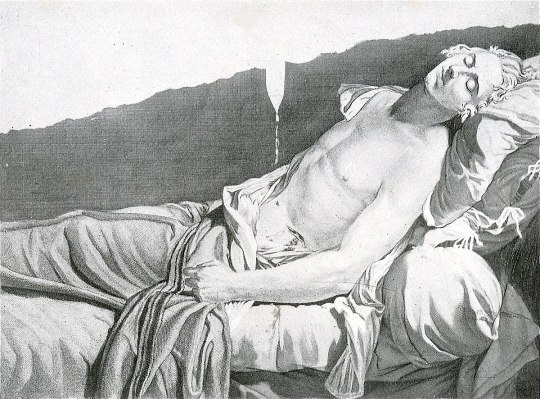
(This image is an engraving of the actual painting, which has gone missing)
After Marat on July 13 1793 (the very same day the plan for public education Lepeletier had been working on was presented to the Convention by Robespierre) became the second assassinated Convention deputy, we find several engravings etc, depicting the two ”martyrs of liberty” side by side.
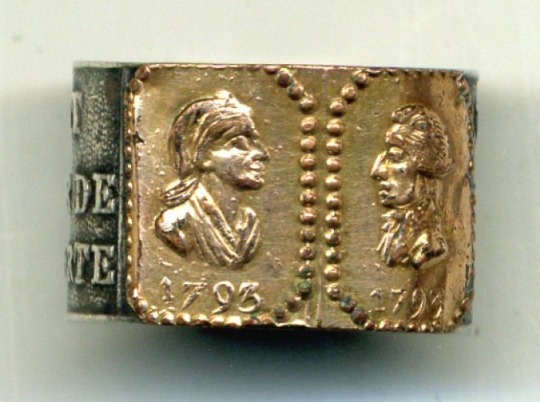



In the following months, even more people would be join the two, such as Joseph Chalier, a lyonnais politician executed on July 17 1793 and Joseph Bara, a fourteen year old republican drummer boy killed in the Vendée by the pro-Monarchist forces.

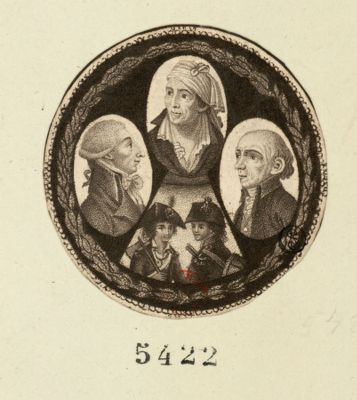
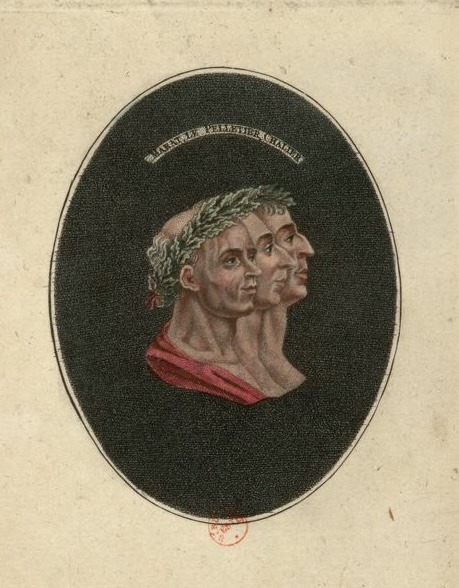

Lepeletier’s murderer, 27 year old Philippe Nicolas Marie de Pâris, a man who the minister of justice described as "former king's guard, height five pieds, five pouces, barbe bleue, and black hair; swarthy complexion, fine teeth, dressed in a gray cloak, green lapels and a round hat” on January 21, went into hiding right after his deed. In spite of his description being published in the papers and a considerable sum of money being promised to whoever caught him, Pâris managed to flee Paris and settled for a country house of an acquaintance near Bourget. He there ran into a cousin of one of the owners. When Pâris asked for food and a bed, he was refused and instead disappeared into the night again. In the evening of January 28 he arrived in Forges-les-Eaux and stopped at an inn, where he came under suspicion once he started cutting his bread with a dagger after which he locked himself into his room. The following morning he woke up with a start as five municipal gendarmes came bursting into his room and told him to come with them. Pâris responded that he would, but in the next second he had picked up his hidden pistol, placed it into his mouth, and pulled the trigger. Searching the dead body, the gendarmes found Pâris’ baptism record (dated November 12 1765) and dismissal from the king's guard (dated June 1 1792), on the latter of which had been written the following:
My certificate of honor. Do not trouble anyone. No one was my accomplice in the fortunate death of the scoundrel de Saint-Fargeau. Had I not run into him, I would have carried out a more beautiful action: I would have purged France of the patricide, regicide and parricide d’Orléans. The French are cowards to whom I say: Peuple dont les forfaits jettent partout l'effroi, Avec calme et plaisir j'abandonne la vie. Ce n'est que par la mort qu'on peut fuir l'infamie Qu'imprime sur nos fronts le sang de notre roi. Signed by Paris the older, guard of the king, assassinated by the French.
Learning about what had happened, the Convention tasked Tallien and Legrand with going to Forges-les-Eaux and making sure the dead man really was Pânis. Having come to the conclusion that this was indeed the case, the deputies briefly discussed whether the body ought to be brought back to Paris, but it was decided it would be better if it was just buried "with ignominy.” It was therefore instead taken into the nearby forest in a wheelbarrow and thrown into a six feet deep hole.
Finally, here are some other revolutionaries simping for honoring Lepeletier’s memory just because I can:
…a tragic event took place the day before the execution [of the king]. Pelletier, one of the most patriotic deputies, and who had voted for death, was assassinated. A king's guard made a wound three fingers wide with a saber: he died this morning. You must judge the effect that such a crime has had on the friends of liberty. Pelletier had an income of six hundred thousand livres; he had been président à mortier in the Parliament of Paris; he was barely thirty years old; to many talents, he added the most estimable of virtues. He died happy, he took to his grave the idea, consoling for a patriot, that his death would serve the public good. Here then is one of these beings whom the infamous cabal who, in the Convention, wanted to save Louis and bring back slavery, designated to the departments as a Maratist, a factious, a disorganizer... But the reign of these political rascals is finished. You will see the measures that the Assembly took both to avenge the national majesty and to pay homage to a generous martyr of liberty. Philippe Lebas in a letter to his father, January 21 1793
Ah! if it is true that man does not die entirely and that the noblest part of himself survives beyond the grave and is still interested in the things of life, come then, dear and sacred shadow, sometimes to hover above the Senate of the nation that you adorned with your virtues; come and contemplate your work, come and see your united brothers contributing to the happiness of the homeland, to the happiness of humanity. Marat in number 105 (January 23 1793) of Journal de la République Française
O Lepeletier! Your death will serve the Republic: I envy your death. You ask for the honors of the Pantheon for him, but he has already collected the prize of martyrdom of Liberty. The way to honor his memory is to swear that we will not leave each other without having given a constitution to the Republic. Danton at the Convention, January 21 1793
O Le Peletier, you were worthy to die for your homeland under the blows of its assassins! Dear and sacred shadow, receive our wishes and our oaths! Generous citizen, incorruptible friend of the truth, we swear by your virtues, we swear by your fatal and glorious death to defend against you the holy cause of which you were the apostle; we swear eternal war against the crime of which you were the eternal enemy, against the tyranny and treason of which you were the victim. We envy your death and we will know how to imitate your life. They will remain forever engraved in our hearts, these last words where you showed us your entire soul; ”May my death,” you said, “be useful to the homeland, may it will serve to make known the true and false friends of liberty, and I die content.��� Robespierre at the Jacobins, January 23
Wednesday 23 [sic] — We went to Madame Boyer’s to see the procession. I saw the poor Saint-Fargeau. We all burst into tears when the body passed by, we threw a wreath on it. After the ceremony, we returned to my house. Ricord and Forestier had arrived. I was unable to stop my tears for some time. F(réron), La P(oype), Po, R(obert) and others came to dinner. The dinner was quite fun and cheerful. Afterwards they went to the Jacobins, Maman and I stayed by the fire and, our imaginations struck by what we had seen, we talked about it for a while. She wanted to leave, I felt that I could not be alone and bear the horrible thoughts that were going to besiege me. I ran to D(anton’s). He was moved to see me still pale and defeated. We drank tea, I supped there. Lucile Desmoulins in her diary, January 24 1793
…Pelletier's funeral took place this Thursday as I informed you in my last letter (this letter has gone missing). The procession was immense; it seemed that the population of Paris had doubled, to honor the memory of this virtuous citizen. The mourning of the soul was painted on all the faces: it was especially noticed that the people were extremely affected, which proves that they keenly felt the price of the friend they had lost. Arriving at the Pantheon, Lepelletier's body was placed on the platform prepared for it; his brother delivered a speech which was applauded with tears; Barère succeeded him. Then the members of the Convention, crowding around the body of their colleague, promised union among themselves, and took an oath to save the country. God grant that we have not sworn in vain, that we finally know the full extent of our duties, and that we only occupy ourselves with fulfilling them! In yesterday's session, Pelletier's daughter, aged eight [sic], was presented to the National Convention, which immediately adopted her as a child of the homeland. Georges Couthon in a letter written January 26 1793
How could I be so base as to abandon myself to criminal connections, I who, in the world, have never had more than one close friend since the age of six? (he gestures towards David's painting). Here he is! Michel Lepeletier, oh you from whom I have never parted, you whose virtue was my model, you who like me was the target of parliamentary hatred, happy martyr! I envy your glory. I, like you, will rush for my country in the face of liberticidal daggers; but did I have to be assassinated by the dagger of a republican! Hérault de Sechelles at the Convention, December 29 1793
For a collection of Lepeletier’s works, see Oeuvres de Michel Lepeletier Saint-Fargeau, député aux assemblées constituante et conventionnelle, assassiné le 20 janvier 1793, par Paris, garde du roi (1826)
#hérault and lepeletier being bffs since age six was new information for me#also i think Augustin just found a rival in ”most loyal little bro in the revolution”#frev#michel lepeletier#lepeletier de saint-fargeau#french revolution#ask#long post
63 notes
·
View notes
Text

// Art: “Incendie du château d’eau, place du Palais-Royal, le 24 février 1848” by Eugène Henri Adolphe Hagnauer
“It is dangerous to be right in matters where established men are wrong.”
— Voltaire, “The Age of Louis XIV”
#voltaire#literature#lit#literature lover#literature quote#literature quotes#philosophy#philosophical#philosopher#philosophers#philosophy quotes#philosophy of life#french philosophy#quote#quotes#excerpts#excerpt#booklover#book#bookworm#books#book quotes#book quotations#art#artwork#classical art#classical painting
175 notes
·
View notes
Text
A Huguenot, on St. Bartholomew's Day, Refusing to Shield Himself from Danger by Wearing the Roman Catholic Badge (1851–52) is the full, exhibited title of a painting by John Everett Millais, and was produced at the height of his Pre-Raphaelite period. It was accompanied, at the Royal Academy of Arts in London in 1852, with a long quote reading: "When the clock of the Palais de Justice shall sound upon the great bell, at daybreak, then each good Catholic must bind a strip of white linen round his arm, and place a fair white cross in his cap. —The order of the Duke of Guise."
It depicts a pair of young lovers and is given a dramatic twist because the woman, who is Catholic, is attempting to get her beloved, who is Protestant, to wear the white armband declaring allegiance to Catholicism. The young man firmly pulls off the armband at the same time that he gently embraces his lover, and stares into her pleading eyes. The incident refers to the St. Bartholomew's Day massacre on August 24, 1572, when around 3,000 French Protestants (Huguenots) were murdered in Paris, with around 20,000 massacred across the rest of France. A small number of Protestants escaped from the city through subterfuge by wearing white armbands. Millais had initially planned simply to depict lovers in a less dire predicament, but supposedly had been persuaded by his Pre-Raphaelite colleague William Holman Hunt that the subject was too trite. After seeing Giacomo Meyerbeer's opera Les Huguenots of 1836 at Covent Garden, which tells the story of the massacre, Millais adapted the painting to refer to the event. In the opera, Valentine attempts unsuccessfully to get her lover Raoul to wear the armband. The choice of a pro-Protestant subject was also significant because the Pre-Raphaelites had previously been attacked for their alleged sympathies to the Oxford Movement and to Catholicism. Millais painted the majority of the background near Ewell in Surrey in the late summer and autumn of 1851, while he and Hunt were living at Worcester Park Farm. It was from a brick wall adjoining an orchard. Some of the flowers depicted in the scene may have been chosen because of the contemporary interest in the so-called language of flowers. The blue Canterbury Bells at the left, for example, can stand for faith and constancy. Returning to London after the weather turned too cold to work out-of-doors in November, he painted in the figures: the face of the man was from that of Millais's family friend Arthur Lemprière, and the woman was posed for by Anne Ryan. The painting was exhibited with Ophelia and his portrait of Mrs. Coventry Patmore (Fitzwilliam Museum, Cambridge) at the Royal Academy of Arts in 1852, and helped to change attitudes towards the Pre-Raphaelites. Tom Taylor wrote an extremely positive review in Punch. It was produced as a reproductive print by the dealer D. White and engraved in mezzotint by Thomas Oldham Barlow in 1856. This became Millais's first major popular success in this medium, and the artist went on to produce a number of other paintings on similar subjects to serve a growing middle class market for engravings. These include The Order of Release, 1746 (Tate, London), The Proscribed Royalist, 1651 (Lord Lloyd-Webber Collection), and The Black Brunswicker (Lady Lever Art Gallery, Port Sunlight). All were successfully engraved. There are smaller watercolor versions of the picture in The Higgins Art Gallery, Bedford, the Fogg Art Museum, Harvard University, and a reduced oil replica in the Lord Lloyd-Webber Collection, all by Millais.
68 notes
·
View notes
Text

Royal Family Returns to Ancestral Home Before Masquerade Ball
La famille royale has made a surprising return to Manoir de Thornolie for a brief respite from their royal duties. This unexpected move comes just days before the highly anticipated bal masqué, where Monseigneur L'Épin is set to announce his choice of bride after months of courting during la saison.
The return to Manoir de Thornolie, a picturesque estate nestled in the heart of the Thornolian countryside, has sparked curiosity and speculation among the public and royal watchers alike. With the bal masqué scheduled to take place at le Palais in only three days, many are questioning the reasoning behind this sudden retreat. Is there something more happening behind the scenes, or is it simply a chance for la famille royale to relax before the grand event?
However, the primary focus remains on the forthcoming announcement from Monseigneur L'Épin. The nation is abuzz with anticipation and excitement as speculation over his choice of bride reaches fever pitch. The two leading contenders for the prince’s heart appear to be Mademoiselle Aurora Aubert and Mademoiselle Eleanor Valery.
Mademoiselle Aubert, known for her grace and charm, has been a favored candidate among many royal enthusiasts. Her poise and dedication have won her considerable admiration, and many believe she would make an excellent future queen. On the other hand, Mademoiselle Valery, who has captured the hearts of many with her quiet intelligence and beauty, is rumored to have long held Monseigneur L'Épin's affections. The two have often been seen together throughout la saison, fueling speculation that she may be the one he ultimately chooses.
Despite the clear favoritism shown by different factions of the populace, uncertainty remains. Monseigneur L'Épin has been seen courting both Mademoiselles Aubert and Valery throughout la saison, leaving the public guessing. Could there be another contender entirely, or is le Monseigneur himself still undecided?
La famille royale has remained tight-lipped about the le Monseigneur, adding to the air of mystery surrounding the upcoming bal masqué. While some see the retreat to Manoir de Thornolie as a chance for le Monseigneur to reflect and finalize his choice, others wonder if there are underlying issues or preparations taking place away from the public eye.
As the day of the bal masqué approaches, excitement and tension continue to build. The nation eagerly awaits the moment when Monseigneur L'Épin will step forward and reveal his future bride, a decision that will undoubtedly shape the future of the Thornolian monarchy.
For now, all eyes remain on Manoir de Thornolie, where la famille royale is ensconced in the tranquility of their historical home. The nation holds its breath in anticipation of the grand revelation that is sure to come, with the hopes and dreams of Thornolia hinging on the choice of one man’s heart.
Previous | Beginning | Next
#thornolia chapter one#ts4#sims 4#historical sims#sims 4 historical#sims 4 royal#sims 4 royalty#sims 4 royal family#sims 4 royal simblr#ts4 historical#ts4 royal#ts4 royalty#ts4 royal family#ts4 royal simblr#thornolia#victorian sims
29 notes
·
View notes
Text

Live broadcast of ‘Le Sacre de Napoléon V’ on the national channel Francesim 2, hosted by Stéphane Bernard


(Another journalist) The procession ascends the cathedral and reaches the choir. (Stéphane Bernard) Indeed, at the head of the procession, you'll notice the palace usher. He's closely followed by the heralds-at-arms, the Master of Ceremonies, the Grand Marshal, and most notably, by Prince Murat, who carries the Empress's crown.



(Stéphane Bernard) Here comes the Empress's procession, following behind the crown. She is surrounded by the women of the imperial family: Madame Mère, Madame Hortense, and the daughters of Prince Imperial Henri. In addition to the imperial mantle, the Empress wears the crown of Marie-Louise of Austria. (Another journalist) Why is the Empress already wearing a crown? (Stéphane Bernard) It's truly unprecedented, yes. During the ceremony, there's a moment dedicated to what we call the "regalia"… In truth, I'll tell you, this term wasn't really used back then. We talked more about ornaments or royal insignia. Deciphering all these symbols live… It's not easy, but… I would say that the Empress seems to be indicating that it's through her marriage that she acquired imperial dignity. As a result, today, she receives another crown: that of Francesim.

(Stéphane Bernard) His Holiness, Pope Gregorius XIX, takes his place near the imperial canopy, facing Their Majesties.

(Stéphane Bernard) And here comes the imperial procession advancing to the majestic sound of trumpets! Leading the way is the Grand Chamberlain, accompanied by the marshals of Francesim. He bears the cruciferous orb.

(Stéphane Bernard) Behind the Orb, Emperor Napoleon V advances in his Grand Habit de Sacre: a purple coat adorned with ermine fur. The laurel wreath of the Roman emperors rests on his head. The Emperor holds in his hands the scepters of Justice and of Charles V, and at his waist, rests the sword of Charlemagne, known as Joyeuse.

(Stéphane Bernard) His Majesty is surrounded by Their Imperial Highnesses, Prince Imperial Henri, and his son, Prince Philippe of Francesim. The procession is closed by the State counselors and members of the government.

⚜ Le Sacre de Napoléon V | N°9 | Francesim, Paris, 28 Thermidor An 230
The coronation ceremony begins in the choir of Notre-Dame de Paris cathedral. It was broadcast live on television by Stéphane Bernard, the famous journalist for the crowned heads in Francesim.
Beginning ▬ Previous ▬ Next
⚜ Traduction française
(Autre journaliste) Le cortège de l'Empereur remonte la cathédrale et rejoint le chœur. (Stéphane Bernard) Effectivement, en tête de cortège, vous remarquez l'huissier du palais. Il est suivi de près par les hérauts d'armes, le Maître de Cérémonie, le Grand Maréchal, et surtout, par le prince Murat qui porte la couronne de l'Impératrice. Car il s'agit aussi du sacre de l'impératrice.
(Stéphane Bernard) Voici le cortège de l'Impératrice, qui marche derrière la couronne. Elle est entourée des femmes de la famille impériale : Madame Mère, Madame Hortense, et les filles du prince impérial Henri. En plus du manteau impérial, l'impératrice porte la couronne de Marie-Louise d'Autriche. (Autre journaliste) Pourquoi l'impératrice porte-t-elle déjà une couronne ? (Stéphane Bernard) C'est vraiment inédit oui. Pendant la cérémonie, il y a un moment dédié à ce qu'on appelle les "regalia"... En vérité, je vous le dis, ce terme n'était pas vraiment utilisé à l'époque. On parlait plutôt d'ornements ou d'insignes royaux. Décrypter tous ces symboles en direct... N'est pas facile, mais... Je dirais que l'impératrice semble signifier que c'est par son mariage qu'elle a acquis la dignité impériale. De ce fait, aujourd'hui, elle reçoit une autre couronne : celle de Francesim.
(Stéphane Bernard) Sa Sainteté, le Pape Gregorius XIX, prend place près du dais impérial, en face de Leurs Majestés.
(Stéphane Bernard) Et voici le cortège impérial qui avance au son majestueux des trompettes ! En tête, le Grand Chambellan, accompagné des maréchaux de Francesim. Il porte l'orbe crucigère. Derrière l'Orbe, l'Empereur Napoléon V avançant dans son Grand Habit de Sacre : un manteau pourpre orné de fourrure d'hermine. La couronne de lauriers des empereurs romains repose sur sa tête. L'Empereur tient dans ses mains les sceptres de la Justice et de Charles V, et à sa taille, repose l'épée de Charlemagne, nommée Joyeuse.
(Stéphane Bernard) Sa Majesté est entouré par Leurs Altesses Impériales, le prince impérial Henri, et son fils, le prince Philippe de Francesim. Le cortège est fermé par les conseillers d'Etat et les membres du gouvernement.
#simparte#ts4#ts4 royal#royal simblr#sims 4 royal#sim : louis#sims 4 fr#sims 4#ts4 royalty#sims 4 royalty#coronation napoleon v#ts4 coronation#notre dame de paris#paris#episode iii#le cabinet noir#royal sims#ts4 royal family#ts4 royal simblr#sim : charlotte#sim : henri#sim : philippevictor#sim : marie joséphine#sim : hortense#sim : charlemagne#sim : jean#sim : stephane bernard
45 notes
·
View notes
Note
Top 5 favorite historical events 👀
Oo, good one! Thanks for the ask ✨
1. The Ides of March
Apart from being a beloved Tumblr holiday, I just find the whole event so interesting! Few times in history have had such a lasting cultural impact (hello, statue of Brutus at the National Convention!).
Plus it's so wonderfully morally grey, which you can see from the different perception of Brutus throughout history (burning in lowest circle of Dante's hell vs. being hailed as a hero by the French revolutionaries).
Was it the right thing to do? It was an act of extreme violence, and the republic was arguably beyond saving anyway, as became clear later. Does it mean it was the wrong thing to do though? I'm definitely not qualified to answer that. But it is an interesting question to think about, which makes this event one of my favourites.
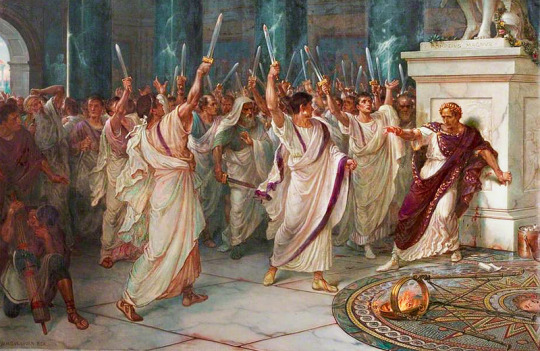
(Plus the whole thing kind of reads like an ancient tragedy, since it could be read as Brutus (& co) killing someone who was essentially a father figure to him, but also was widely known to have slept with his mother. Hamlet who?)
2. Camille rallying the crowds at Palais Royal
I'm a sucker for a good epic moment, and this is certainly one of them. Camille leaping on the table and overcoming his stutter to address the crowd of dissatisfied Parisians, inspiring them to take action? Yes please!
(not to mention that any event that demonstrates the power that words can have is going to be automatically interesting in my book.)
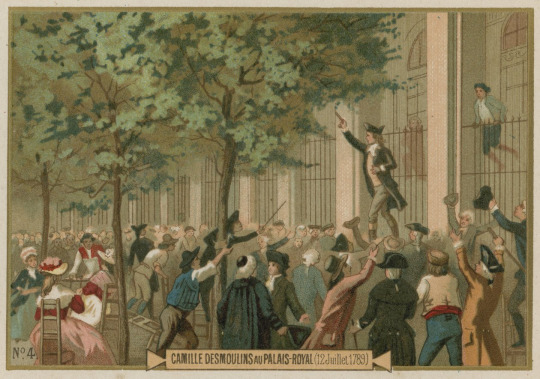
3. The Servilia Letter Affair
Situated during the late Roman Republic after the Catiline conspiracy, it's another hilarious evidence of the fact that poor Cato the Younger simply couldn't catch a break.
For those uninitiated: as Cato and Caesar were arguing about what kind of punishment is appropriate for the conspirators wanting to overthrow the consul, a mysterious letter was delivered to Caesar, right in the senate. Cato suspected that there was something foul going on, something that could potentially link Caesar - Cato's oponent - to the conspiracy that was just being discussed. He therefore seized the letter from Caesar and insisted he will read its contents out loud, in front of everyone. Doesn't sound all that unreasonable, right? ...except the document in question just happened to be a steamy, in Plutarch's words "unchaste" love-letter to Caesar, written by none other than Cato's own half-sister, Servilia.* Yikes. Cato apparently proceeded to then throw the letter back to Caesar, saying: "Take it, thou sot." Iconic.
* who was also Brutus' mother. See, it's all connected!
4. Publishing of the Éncyclopedie
I just love studying the Age of Enlightenment as a whole, but I think the Éncyclopedie is perhaps the best embodiment of all of the things the era was about. I like learning about the Éncyclopedistes - their petty personal dramas are fun to read about, but I also like the fact that what fuelled the project was a (mostly) genuine desire to educate people and make human knowledge more readily available to the masses.
Also look what I came across while in Verona!! ->
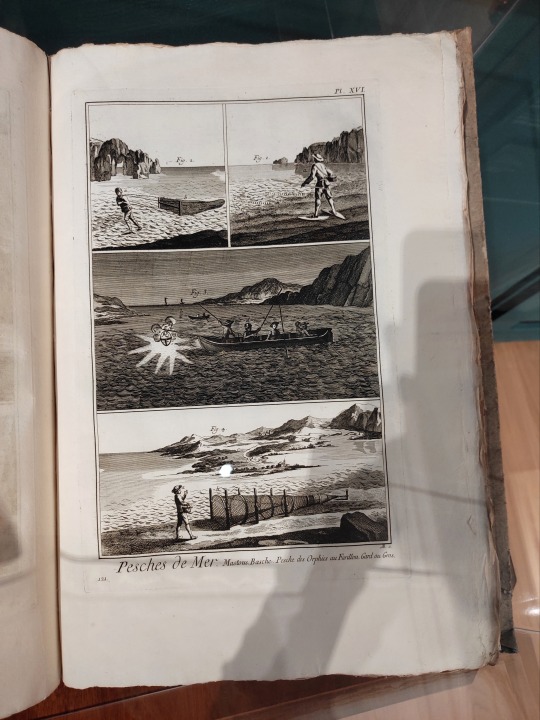
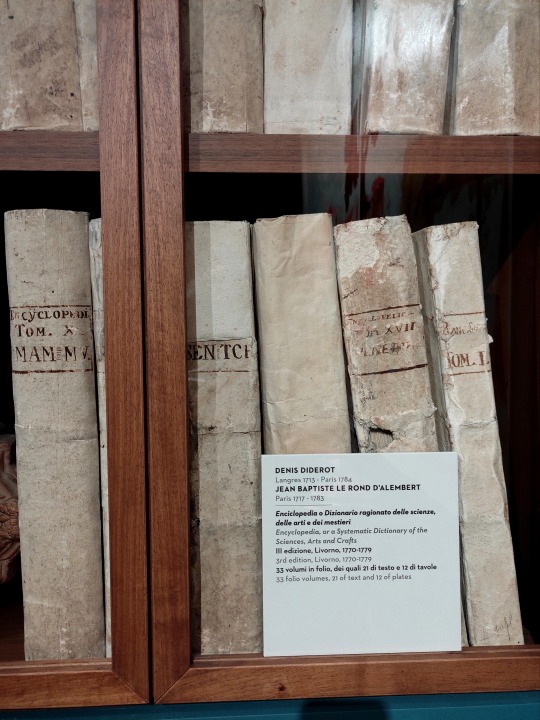
5. Women's March on Versailles
A great reminder that women can be a strong political force and that their place in history should not be overlooked! Though it was not necessarily a women-only event, it clearly shows just how much of a significant role women (and working class people in general) played in the French Revolution.
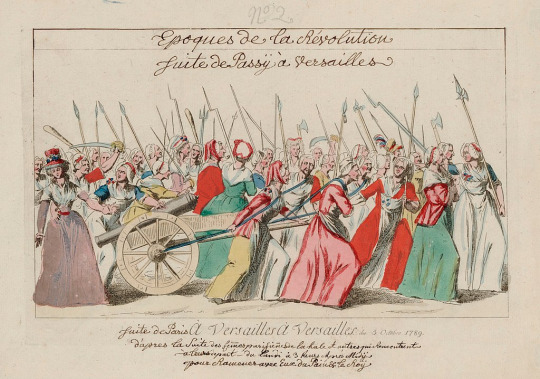
#thanks for the ask!#ask game#history#sorry for taking ages#french revolution#frev#frevblr#camille desmoulins#women's march on versailles#1700s#18th century#roman republic#tagamemnon#marcus junius brutus#brutus#ides of march#julius caesar#ancient rome#cato the younger#servilia#encyclopedia#denis diderot#jean d'alembert#french history#age of enlightenment
23 notes
·
View notes
Text

Harris Bell - The Royal Ballet - photo by Kosmas Pavlos
Scottish dancer Harris Bell is a First Artist of The Royal Ballet. He joined The Royal Ballet’s Aud Jebsen Young Dancers Programme from the start of the 2018/19 Season and was promoted to Artist in 2019 and First Artist in 2023.
Growing up in Dollar, Scotland, he started ballet at the age of seven and went on to train at Elmhurst Ballet School and The Royal Ballet School, graduating through the school. Awards included Most Promising Boy 2013 at Elmhurst Ballet School and third place in the Lynn Seymour Award for Expressive Dance 2016 while at The Royal Ballet School.
Roles in the School’s annual matinees included Didy Veldman’s See Blue Through, Frederick Ashton's The Two Pigeons, Robert Binet's Self and Soul pas de deux, Liam Scarlett's Third Movement and Aurora's Wedding in Anthony Dowell's adaptation of The Sleeping Beauty.
He represented The Royal Ballet School at the Gala Des Ecoles 2017 performing the 2nd Movement from Kenneth MacMillan's Concerto at the Palais Garnier, Paris. He performed with the Company as a student in Christopher Wheeldon's Alice's Adventures in Wonderland and The Winter's Tale, Kenneth MacMillan's Manon, Frederick Ashton's Sylvia and Liam Scarlett's Swan Lake.
His repertory with the Company includes Spanish dance (Swan Lake, The Nutcracker), Matvei (A Month in the Country) and roles in Like Water for Chocolate). He created a role in Untitled, 2023.
#Harris Bell#The Royal Ballet#Kosmas Pavlos#dancer#bailarín#ballerino#danseur#tänzer#boys of ballet#ballet men#dance#ballet
39 notes
·
View notes
Text
Mirror
Palais de Royal Rouge, Windensen, Pierreland

Footman: The Grand Duke of Anjou Your Imperial Majesty. David: Thank you. Felipe, take a seat. Felipe: I'd rather not. David: This is going to take a while Felipe.
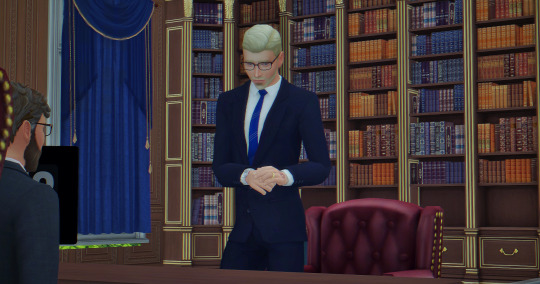
Felipe: What is there to say? Edmund told me everything. Stripping me and my children of my titles and estates, my order of the lion, my stipend...let's just sign and get it over with. David: I want you to understand why I've done this. You broke the law. You've practically ruined relations with the Ionian Union. I want your word that you aren't going to say anything about the parentage of Prince Lenerd of the IU. Felipe: Where do I sign? David: Felipe. Your Word.

Felipe[flippantly]: Yes. Yes. I won't say anything about the baby. Is this what you do father? Bargain people into silence? David: Felipe, what are you talking about? I just want to ensure that you will at the very least not spill family secrets- Felipe: Who else did you make this kind of deal with over the death of Ben? I knew you were angry but I didn't peg you for a murderer.

David: What has gotten into you Felipe? Ben was sentenced to death over thirty years ago and he chose the firing squad. That is the truth. Those are the facts. I know you are angry but you are letting it cloud your judgment and your simtube history since you are believing such conspiratorial nonsense! Felipe: Conspiratorial nonsense HA! Anything that goes against you is conspiratorial. May I remind you, this is not Francesim as much as you try to make it so... You do not control the press nor public opinion. David: Which due to your actions, will tank in the future. You are not sorry for this are you?
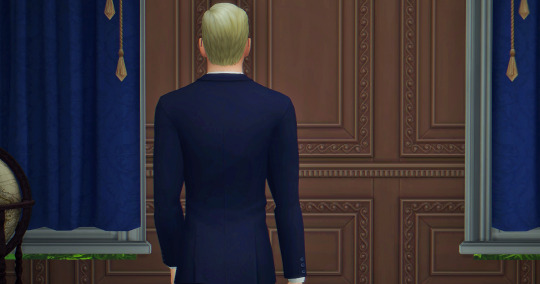
Felipe: It's always been about perception for you...Watcher it's fucking annoying. David: Watch your tone.
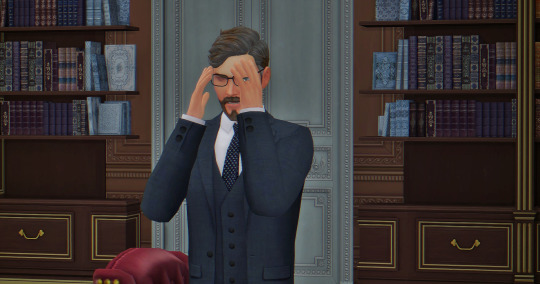
David: You are being ridiculous. You do realize that I claimed you. Which I did not have to do by the way, it was done out of love, not perception. [sighing] You will never understand the things I have done for the Empire. For the Family and you never will. because you will never have to be the emperor! Felipe: because I'm a bastard. Like the baby. except at least he gets to be a prince. David: For fucks sake is this what it's all about?
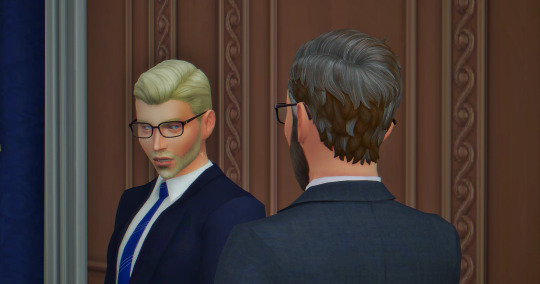
Felipe: No. Yes...it's about everything! The secrets. The lies. The fact that you seem to put Louis above everyone. I'm your eldest son! David: And Louis is the heir to the throne. I'm sorry Felipe, that I am putting Louis ahead of you. I won't deny that I am because it is the truth because one day, he is going to have to shoulder the empire and frankly, he and I may not have enough time so that I can pass the lessons of the trade to him. The Emperor as a role is supposed to be above scandal. That is why my first instinct was to suppress the letter. It was the same instinct my private secretary had with you all those years ago...except I changed my mind then...and I had changed my mind that next day.
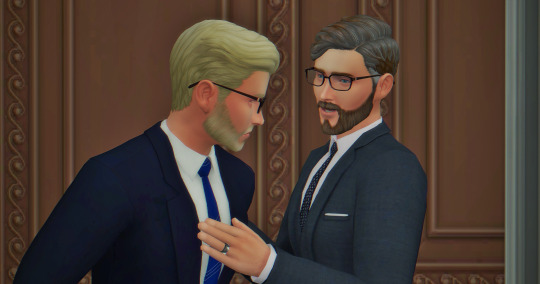
Felipe: Then why not announce it to the world. David: Because you, dear boy, wrote that letter and had it mailed. Letters between monarchs move fast in Europesim. When you also burned the original, you backed me into a corner. Felipe[muttering]: You mean your pride backed you in.
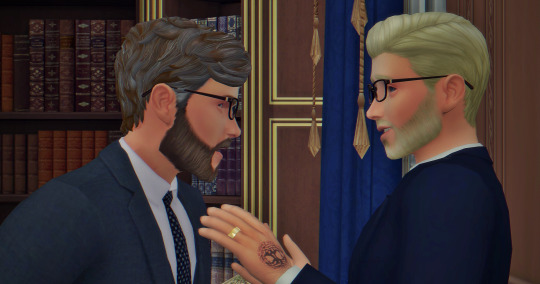
David: And your pride in being a councilor of state pushed you to commit crimes Felipe. CRIMES. You are lucky I do not want to have your sons visit you behind bars. Felipe: Prison is a dangerous place for someone who goes against you. Since you.killed.Ben. [SLAM]

David: I.did.not. This insinuation you are making is treasonous and frankly, you are pushing the limits of my empathy for your wives and children. Are we clear Felipe? Felipe: Father I- David: Are we clear?? Felipe: We're clear... David: Very good.
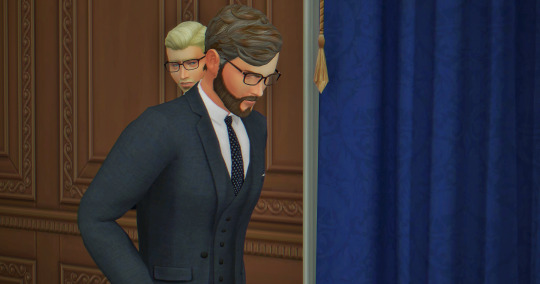
Felipe: Papa I- David: The world will be told that you willingly gave up your titles and that you are moving to Simnovia with your family. Go before I change my mind.
18 notes
·
View notes
Text
Court Circular | 24th July 2024
St James’s Palace
The Princess Royal, Member, International Olympic Committee, and Chairman, International Olympic Committee Members Election Commission, today attended the International Olympic Committee Session at the Palais des Congrès de Paris, 2 Place de la Porte Maillot, Paris, France.
Her Royal Highness, President, British Olympic Association, this evening attended a Reception in the Rue du Faubourg Saint-Honoré, Paris, to welcome Team GB to the XXXIII Olympic Games and was received at the Residence of His Majesty’s Ambassador to the French Republic by Her Excellency Dame Menna Rawlings.
17 notes
·
View notes